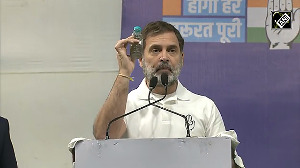 India has told the United Nations that governance of cyber space should be democratic and transparent and cannot be managed as a "private property".
India has told the United Nations that governance of cyber space should be democratic and transparent and cannot be managed as a "private property".
"As a multi-cultural, multi-ethnic and democratic society, India is fully committed to the free growth of the internet," MP Ashwani Kumar said in New York on Thursday at a UN General Assembly session on 'Information and Communications Technologies for Development.'
India stressed the need for a multilateral, transparent and democratic international management for internet with full involvement of governments, private sector, civil society and international organisations.
"We believe that the governance of cyber space which is based on the values of democracy, pluralism, inclusion, openness and transparency should also be similarly inclusive, democratic, participatory, multilateral and transparent in nature," Kumar added.
India has repeatedly opposed controlling the internet in the name of cyber security. It has also voiced its opposition to an approach by an inter-governmental committee in the United Nations that is trying to tackle the issue of cyber security through some kind of government control.
"If cyber space is a global commons, it cannot be managed only as private property. Its governance and architecture should reflect this fact as also respect for basic human rights including the inalienable human right of privacy," Kumar said.
He said global internet governance can be "functional, effective and credible" only if all its stake-holders, including those in developing countries are consulted.
The 2005 Tunis agenda, adopted at a World Summit on Information Society, was a consensus statement that called for creation of an internet governance forum.
Kumar said operationalising the Tunis mandate should not be viewed as an attempt by governments to 'take over' or to 'regulate' the internet.
"It is important that these issues are discussed openly," he said.
Kumar said India attaches "great importance" to the use of cyber space and information and communications technology as a major vehicle for achieving the goals of sustainable development.
"India remains committed to cooperate with all our partners in developing policies through the United Nations to support the use of cyber space and ICTs for sustainable and inclusive development," he said.
Image: Ashwani Kumar











 © 2025
© 2025